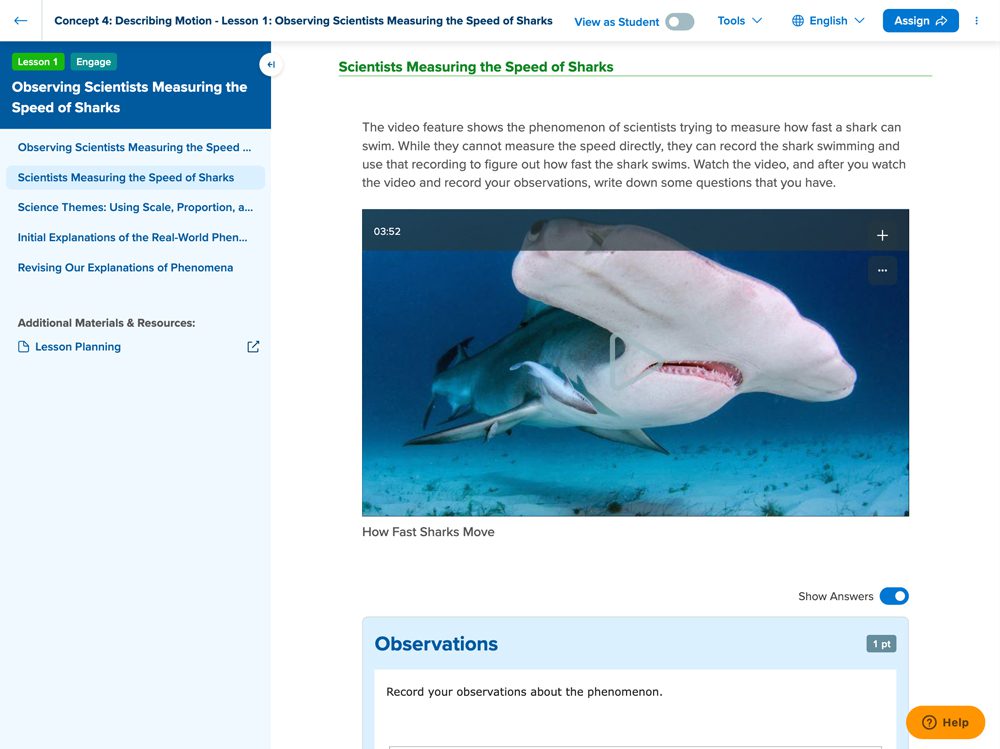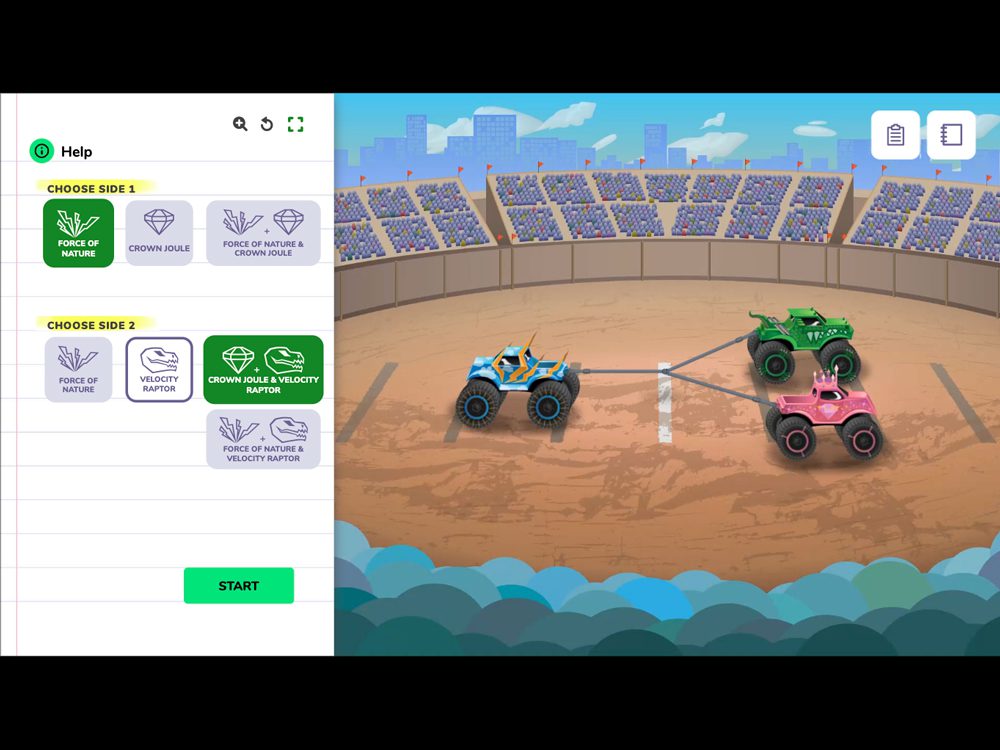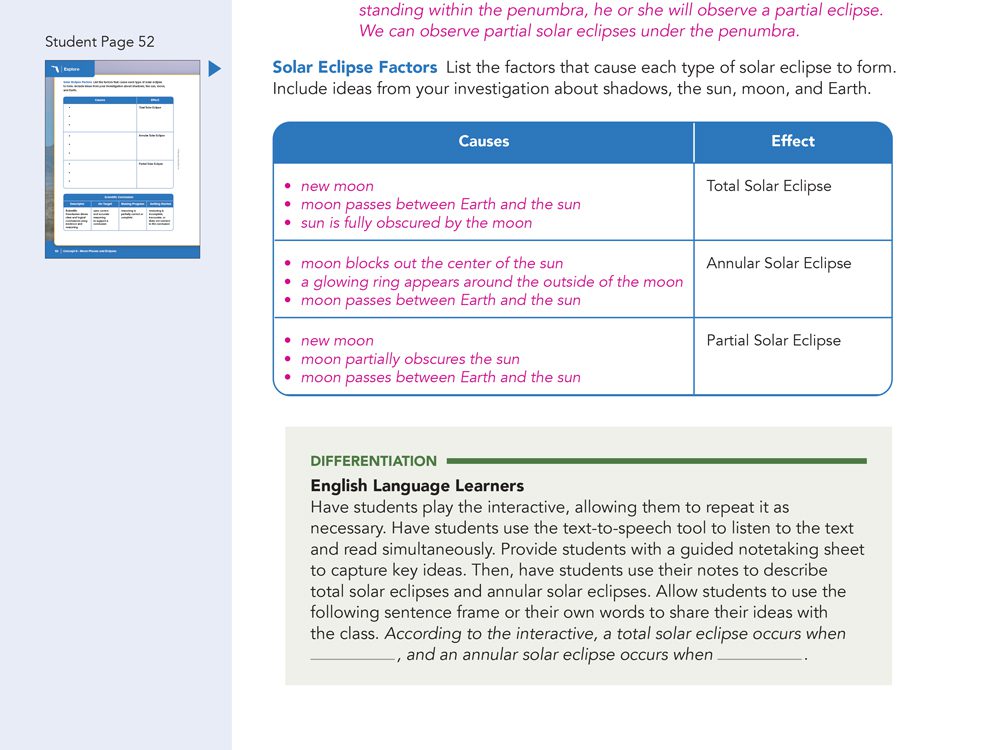
Let’s get started with your review of grades 6-8 and see how easy it is to guide your students into becoming junior scientists and engineers!
Discovery Education’s Science Techbook for Florida is a comprehensive core curriculum designed for Florida teachers and students.
Science Techbook for Florida strategically and systematically integrates the Florida State Academic Standards for Science - including the Nature of Science benchmarks.
Summative assessments are written to test item specifications for the Florida Statewide Science Assessment.
Easily excite students with engaging hands-on activities and interactives that fit into standard lessons.
Middle School lessons are ready-to-teach with point-of-use instructor support and flexible options.
Science Techbook for Florida provides a complete science curriculum in English and Spanish.
Science phenomena and activities often feature Florida locations so students can truly see themselves in the program.
Science Techbook for Florida is a hands-on and immersive active learning program. Watch students transform into junior scientists and engineers through engaging real-world lessons.

Students are motivated to understand the science content because it’s exciting and relevant.






Students build conceptual understanding through hands-on activities and interactives in every Concept.






Embedded strategies for differentiated instruction support accessible science instruction.



Make the most of your time! Science Techbook for Florida includes intuitive digital tools that personalize the student experience and instructor resources that streamline processes.
In the Evaluate lessons, you will find Concept Summative Assessments. The question types in these assessments are written to test item specifications.
Many assessments are auto-graded, and instructors can view individual student and class performance in the Concept Assessment Results section. Students, teachers, and parents can access real-time data on student progress via the dashboard.
In Elaborate lessons, students expand on the scientific ideas within each Concept by making connections and applying ideas to real-world experiences through STEM projects and STEM careers. Now that students have acted like scientists and engineers, they can learn how professional scientists and engineers study the same evidence they uncovered in your classroom.
Science Techbook for Florida authentically engages students through the Nature of Science, across each unit, to better prepare students for success on these benchmarks. By using creativity in their methods, processing, and questioning, students think and act like a scientist and discover that scientific inquiry is a multifaceted activity. Science Techbook for Florida is designed to support students’ understanding that the processes of science include the formulation of scientifically investigable questions, the construction of investigations into those questions, the collection of appropriate data, the evaluation of the meaning of those data, and the communication of this evaluation.
At the close of each lesson, students complete formative assessments called, “What Did You Figure Out?” and “Check For Understanding.” Available in print and digital modalities, these assessments provide a quick opportunity for students to demonstrate their understanding. Phenomenon Check-Ins serve as another formative check for understanding that allow students to reflect on their sensemaking. As students generate and analyze data, these artifacts allow teachers to monitor student progress.
Many of the formative assessments are auto-graded with built-in scaffolded supports for instant feedback. For more info on assessments, click here.
In each Concept, students are presented with a real-world phenomenon. The Engage lessons are carefully crafted to solicit student curiosity and encourage them to ask questions related to the core concepts for the FL Standards associated with the concept.
Using the CER framework, students synthesize the evidence they gathered while completing hands-on activities, interactives, and literacy activities in the Explore lessons.
They evaluate the validity of this evidence to answer their original questions about the phenomenon from Engage and revise their initial claims and models.
Rubrics and the ability to provide personal feedback to their peers help students continue to improve the rigor of their explanations over time.